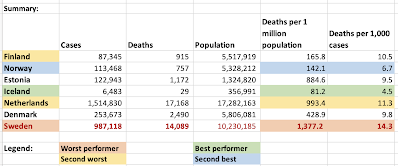Ireland's PMIs have accelerated across all two key sectors of Services and Manufacturing in April, while Construction Sector continued to post declining activity (through mid-April).
Irish Manufacturing PMI rose from 57.1 in March to 60.8 in April as larger multinationals boosted their activities and increased pass-through for inflation. This marks third consecutive month of increasing PMIs for the sector. Meanwhile, Irish Services PMI rose from 54.6 in March to 57.7 in April, marking second consecutive month of above 50 PMIs readings.
In line with the above developments, official Composite PMI rose from 54.5 in March to 58.1 in April.
Irish Construction Sector PMI, reported mid-month, was at 30.9 (significantly below 50.0, signaling strong rate of contraction in activity) in mid-April, a somewhat less rapid rate of decline relative to mid-March reading of 27.0. All in, Irish Construction Sector PMI has been sub-50 for four consecutive month now.
In contrast to Markit that publishes official Composite PMI, I calculate my own GVO-shares weighted index of economic activity across three sectors: my Three Sectors Index rose from 55.0 in March 2021 to 58.3 in April.

In terms of inflation, Services PMI release states that "Cost pressures remained strong in April, linked by survey respondents to labour, insurance, fuel, shipping and UK customs. The rate of input price inflation eased slightly from March's 13-month high, however. To protect profit margins, service providers raised their charges for the second month running. The rate of charge inflation was the strongest since February 2020, albeit modest overall." The indications are that Irish services firms are operating in less competitive environment than their global counterparts, with stronger ability to pass through cost increases into their charges. However, this feature of Irish data most likely reflects the accounting complexity within major multinationals trading through Ireland.
Similar situation is developing in Manufacturing: "Supply chains remain under severe pressure, with longer delivery times owing to new UK Customs arrangements, transport delays and raw materials shortages. These factors, combined with strengthening demand, are leading to a heightening of inflationary pressures. Input prices increased at their fastest pace in ten years, while output prices rose at a series-record pace."
All in, we are witnessing signs of continued inflationary pressures across a number of months now, with even multinationals - companies using Ireland as primarily a tax and regulatory arbitrage location for their activities - feeling the pressures. This is an indication that inflation is building up globally and, as time drags on, starting to feed through to final prices of goods and services.


















